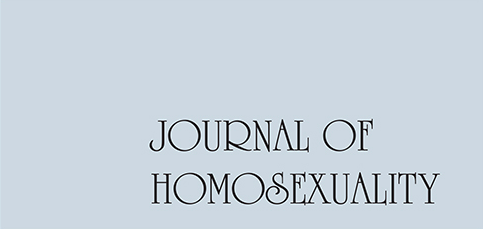
If you’re like many LGBTQ+ people, you’re looking for a therapist who gets it, not just at a surface level, but in a real sense.
Gay Therapist in DC: Commonly Asked Questions
-
Great question! The acronym LGBTQ+ represents lesbian, gay, bisexual, trans, and queer people, as well as others of diverse sexual identities and genders. Though only a handful of broad identities are explicitly named in this acronym, it is intended to be an umbrella inclusive of all people who do not identify as cisgender and heterosexual.
At the end of the day, any acronym we use to describe our community of diverse sexual and gender identities will miss opportunities to include less commonly used but no less valid representations of human experience. New ways of understanding and representing ourselves are constantly being created, and while the original acronym has changed and expanded to be more inclusive of many, some still may not feel represented solely by L, G, B, T, or Q. For example, some may identify with terms like “same-gender loving,” “demisexual,” “nonbinary,” or “intersex” that are not immediately identified within the briefer LGBTQ acronym. The plus sign is added to acknowledge and honor the ever-expansiveness of our experiences and the often evolving language we discover to describe them.
-
I proudly identify as gay and additionally identify as queer. I am a cisgender man and strive to be an ally to our trans family, and I additionally identify as sex positive, inclusive of diverse family structures and relationships (like consensual polyamory and non-monogamy), affirming of kink-identified people, and an ally to sex workers.
Simply put, I take great pride in being a queer therapist and a member of the LGBTQ+ community!
-
Ever since I began training to become a therapist, I have sought out opportunities to meet the needs of queer and trans therapy clients by training in LGBTQ+ and QTPOC-affirming care. For example, I previously worked with a private practice that specialized in providing LGBTQ-affirming therapy in DC, and I regularly became the go-to for queer and trans therapy clients in every other setting I have worked in as a gay therapist. Outside of my immediate experiences providing LGBT therapy, I have also worked in higher education providing LGBTQ+ student support to local university and college students and have engaged in LGBTQ+ advocacy and activism. To date, I have helped numerous LGBTQ+ therapy clients to heal, become more connected with others, and live more meaningful and fulfilling lives, and for me there are few greater gifts than being in a position to do just that!
-
As a gay therapist, I love supporting LGBTQ+ people and QTPOC therapy clients on their journeys. Sometimes that support’s specific to their queer or trans experience: discovering language to describe who they are; navigating issues of outness; finding community (and coping with challenges within that community); developing ways of affirming their gender or sexuality in difficult spaces; and so forth. Other times those parts of themselves are no less important to the make-up of their lives, but perhaps a bit less central to the concerns that bring them to therapy (e.g., stress and anxiety). Whatever the case may be, I hope to honor and celebrate your experience as an LGBTQ+ person in our work together. It will be my responsibility to foster a space that is safe, inviting, and affirming of that lived experience; I invite you to join me in your entirety there!
-
Queer and trans people, not unlike cisheterosexual people, face many challenges in their lives. Sometimes, these challenges feel entirely unrelated to their sexual or gender identities. For example, a queer woman may come to therapy struggling to unlearn the unhelpful ways her family taught her to cope with her emotions that have caused her to struggle with depression and in her relationships, or a transman may seek therapy to address the anxiety he experiences related to issues of perfectionism. Other times, queer and trans people may seek therapy to address concerns specific to their queer or trans identities, like when struggling with coming out or finding ways to affirm their gender. More often, LGBTQ+ therapy clients benefit from a mix of the two; for example, the transman described earlier may discover in therapy that the perfectionism developed in his upbringing also affects how he internalizes societal expectations of men and the pressures placed on transmen to “pass.”
In any case, working with an LGBT therapist as a queer or trans therapy client can offer unanticipated insights and opportunities for self-understanding that may be missed if working with someone less familiar with LGBTQ+ identity and concerns. While many queer and trans clients work successfully with allied therapists, many also express a preference for working with a trans or queer therapist who understands their concerns on a more personal level.
-
My work with LGBTQ+ therapy clients spans a number of issues common to therapy, including such concerns as:
* Depression
* Stress and anxiety
* Relationship difficulties
* Challenging family dynamics
* Low self-esteem
* Social anxiety
* Isolation and loneliness
* Difficulty with interpersonal vulnerability and intimacy
* Emotional dysregulation and confusion
* Post-traumatic stress and trauma recovery
More specifically, I work with queer and trans therapy clients on a host of issues relevant to their LGBTQ+ identity and experience, including but not limited to:
* Uncertainty navigating the coming out process and negotiating levels of outness in different environments
* Challenges with dating, particularly when dating online
* Coping with discrimination based on their gender or sexual identity
* Gender and sexual identity development and acceptance
* Feelings of loneliness and isolation
* Difficulties with intimacy in sex and dating
* Shame and stigma related to their HIV+ status
* Challenges negotiating open relationships or other relationships structures with partner(s)
* Post-traumatic stress related to LGBTQ+ discrimination and violence
* Anxiety navigating the workplace as a queer or trans person
* Internalized shame related to their queer or trans identity
* Surmounting barriers to finding community and making connections with other LGBTQ+ people
* Confrontations with intracommunity issues like racism, femmephobia, and sizeism in the queer community
* Stress related to navigating the world as a queer or trans person (i.e., minority stress)
* Stressors resulting from intersections of their queer or trans identity with other identities such as their race, ethnicity, size, immigration status, ability status, etc.
Whatever the case may be, working with a gay therapist who intimately understands these concerns may mean less time spent explaining, fewer anxieties about feeling misunderstood, more time spent working on the goals you have for therapy, and beginning to feel better, sooner.
-
While queer and trans people are disproportionately affected by mental health concerns, we make up only a small portion of the general population, and for this reason the majority of help-seeking people do not identify as LGBTQ+. Much of my training and experiences have therefore been in working with heterosexual and cisgender people, and I have had many, many joyful experiences being of service in this way!
That said, while some may understandably worry that an LGBT therapist will not understand their experiences, I actually believe that I and other LGBT therapists are uniquely positioned to help cisheterosexual people. Here are just a few examples of why I believe that to be true:
* Many LGBT therapists have had to personally encounter and resist societal expectations that stifle or limit self-actualization
* Many LGBT therapists have had to personally struggle to combat shame in order to live authentically, a tension we all experience
* Many LGBT therapists have unique insights into community and relationship-building strategies, having themselves struggled with periods of isolation
* Many LGBT therapists effectively interrogate gender expectations that affect everyone’s mental health (e.g., men may struggle under the pressure to conform to masculine ideals)
* Many LGBT therapists have unique insights into how family expectations and dynamics in your upbringing can cause present-day harm
* Many LGBT therapists have more frequent experience working with non-traditional family and relationship structures (e.g., polyamory or non-monogamy)
* Many LGBT therapists are sex positive and inclusive of diverse sexual interests (e.g., kink)
To be clear, there are many, many, many incredible therapists who identify as cisgender and heterosexual, and many who effectively work with a wide range of issues including those listed above! Above all else, I encourage you to focus on finding a therapist who feels like they will be a good fit for your concerns, personality, and relational style and one you can imagine forging a strong relationship with, as these are the traits that often end up defining your therapeutic experience.
-
I practice therapy, in-part, from a feminist and phenomenological perspective. This means that I strive to understand my LGBTQ+ therapy clients within the context of their lives, families, cultures, and society in order to most fully comprehend their lived experiences. This also requires me to understand how identity, power, and oppression affect you and your mental health.
LGBTQ+ people undeniably encounter unique threats to our mental health that can be addressed in therapy, often with a queer therapist. However, these are not the only challenges we face, and society and our cultures may create additional barriers to achieving wellness based on our other identities. For example:
* Queer people of size may encounter fatphobia or harmful pressures to lose weight when dating within the queer community
* Feminine gay men may struggle against pressures to appear more masculine, despite this feeling inauthentic to them
* Religious queer people may find themselves squeezed out of their religious communities of origin, as well as met with suspicion by some queer people who themselves have been harmed by religious institutions
* Bisexual people may encounter biphobia when dating, both from partners of the same and other genders, or may feel their identity is erased when dating a partner of another gender
* Trans immigrants may struggle to find words in their native language to describe who they are to their family when coming out
* Latinx gay men may struggle with ideals of machismo when exploring their sexuality
The list goes on and on. Ultimately, all of these complications over time can chip away at your mental health in the absence of effective resources for coping with them. One such resource is LGBTQ therapy with a gay therapist, like myself, who may have a more intimate understanding of these unique concerns and who is skilled and experienced in helping you to more effectively address them.
-
QTPOC simply stands for “queer and trans people of color,” and QTPOC-affirming therapy is therefore therapy that centers and celebrates your experience as a queer or trans person of color in the therapeutic process. While all LGBTQ-affirming therapy ideally should be affirming of QTPOC experience, this is not always the case, and queer and trans people of color may be understandably suspicious of working with a White therapist (like myself) as a result. I use the language of QTPOC to explicitly name my investment in being an affirming therapist to these members of our community.
The fact is that queer and trans people of color face unique challenges to their mental health relative to their White and cisheterosexual counterparts. For example, queer people of color often encounter racism while dating online (a topic I researched for my doctoral dissertation) that White queer people do not. Alternatively, trans people of color are at a disproportionate risk for houselessness relative to their cisgender counterparts. These are unique experiences that may be missed by a therapist who fails to understand identities as inherently intersectional or who prioritizes one set of experiences over others.
While I am confident in my work with QTPOC therapy clients, I understand that some may feel more comfortable working with a therapist who shares their identities. If you are looking specifically to find a QTPOC therapist, I would encourage you to check-out the following resources:
* National Queer & Trans Therapists of Color Network’s therapist directory: https://nqttcn.com/en/
* Therapy for Queer People of Color: https://www.therapyforqpoc.com/
-
I’m so happy to hear you are reaching out for support, even if for now that may not mean seeking therapy. Here are a few national resources for queer and trans people that you can call or text immediately. Please note that some of these are intended (though not limited to) crisis intervention and suicide prevention outreach and others may offer limited service hours. I also cannot personally attest to the quality of services provided by each.
Transgender Community
* Trans Lifeline: 877-565-8860
LGBTQ+ Youth
* LGBT National Youth Talkline: 1-800-246-7743
* TrevorLifeline: 1-866-488-7386
* TrevorText: Text START to 678-678
QTPOC Community
* DeHQ: LGBTQ Helpline For South Asians: 908-367-3374
* BlackLine: 1 (800) 604-5841
All LGBTQ+ Community
* GLBT National Hotline: 888-843-4564
* National Coalition Of Anti-Violence Programs: 212-714-1141 (English & Spanish)
-
Some gender-affirming medical interventions require psychological assessments and letter(s) of support from a licensed mental health professional(s). This can create a significant financial burden for trans and non-binary people who may already be struggling financially while seeking gender-affirming care. The Gender Affirming Letter Access Project (GALAP) was created as an attempt to alleviate these burdens by creating a directory of therapists and mental health professionals who have agreed to provide a certain number of pro bono assessments and letter writing services per month. As with any resource on this page, I cannot personally attest to the quality of care provided by these individuals, though I do know a few local providers on this registry whose work I admire and trust. Check out GALAP’s website for their therapist directory below:
* The Gender Affirming Letter Access Project (GALAP): https://thegalap.org/






